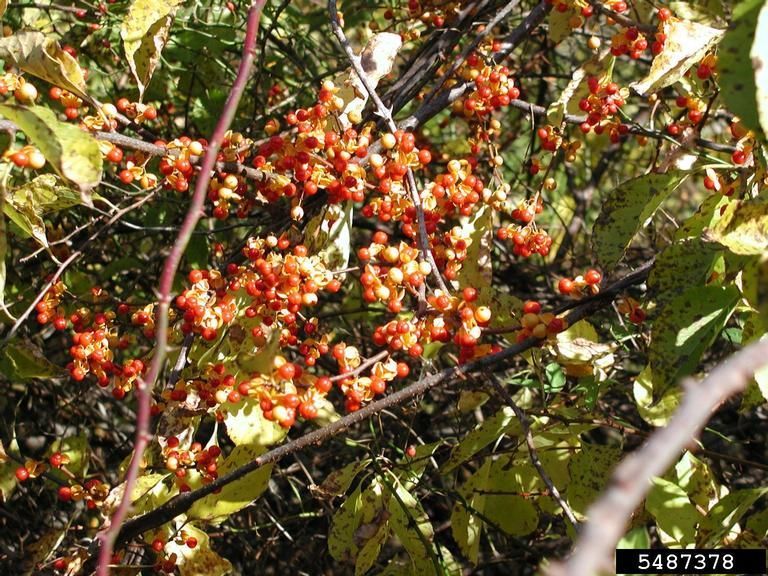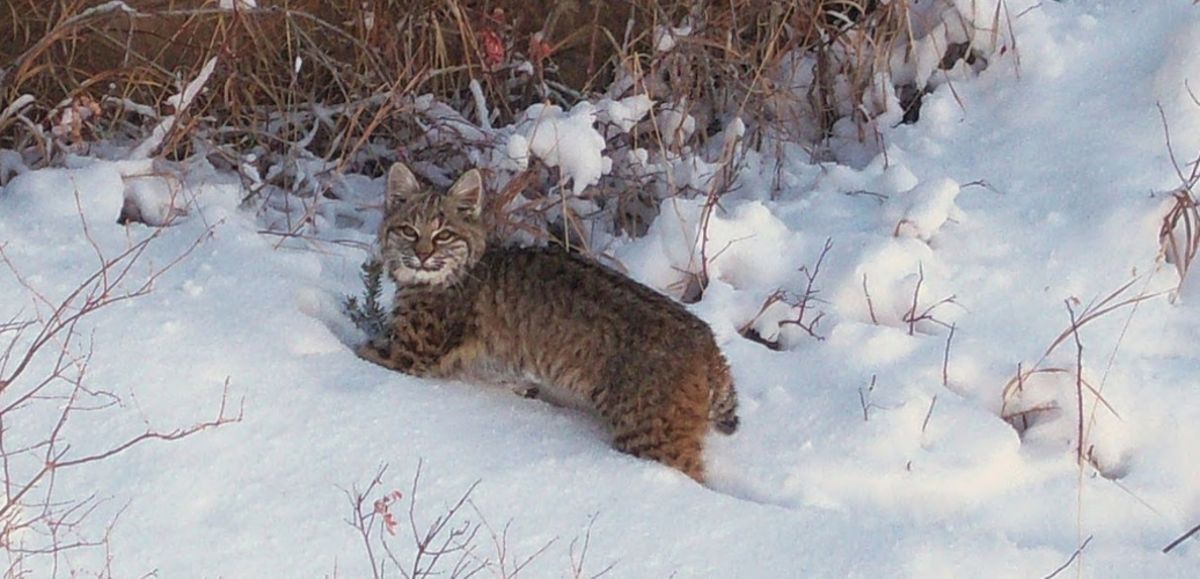My role as MUCC’s Engagement Specialist
Last week I shared my direct experience as a Huron Pines AmeriCorps member and my involvement serving with the program. This week I will be sharing my experiences thus far at my host site as MUCC’s Engagement Specialist. To define my role as an Engagement Specialist would be slightly difficult because MUCC is open to me learning and growing in many different roles. Although, I can narrow it down into three main categories in which I spend my service time.
Michigan Wildlife Cooperatives
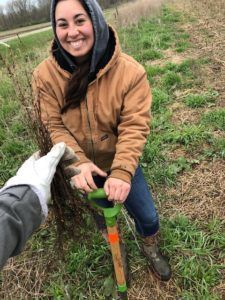 Morgan and I knew each other before I became a Huron Pines AmeriCorps member and to say that I was excited to serve under her is an understatement. She represents the Michigan Wildlife Cooperatives program very well and I have absorbed a great deal of what it takes to work with private landowners in a cooperative manner from her. She has involved me in the planning of the annual Deer Rendezvous event happening this August. This year, she really wants the co-op & branch leaders to walk away from this event truly feeling like better leaders. Asking me to help make that possible has been a rewarding task. Next week will be our third planning meeting and from each, we have taken a step in the right direction with helpful guidance. Stay tuned to hear more about the event coming up August 4th.
Morgan and I knew each other before I became a Huron Pines AmeriCorps member and to say that I was excited to serve under her is an understatement. She represents the Michigan Wildlife Cooperatives program very well and I have absorbed a great deal of what it takes to work with private landowners in a cooperative manner from her. She has involved me in the planning of the annual Deer Rendezvous event happening this August. This year, she really wants the co-op & branch leaders to walk away from this event truly feeling like better leaders. Asking me to help make that possible has been a rewarding task. Next week will be our third planning meeting and from each, we have taken a step in the right direction with helpful guidance. Stay tuned to hear more about the event coming up August 4th.
Education Department
Shaun Mckeon is my supervisor, yes, but beyond that, he is a great mentor and hard-working Education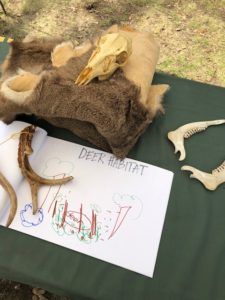 Director for MUCC. He has involved me in so much right off the bat and I couldn’t be more thankful because that is what this service/experience is all about, growing as a future conservation leader. In previous blogs, I touched on some educational events: Kirtland’s warbler presentations, Science Fair, Ultimate Sports Show, Crane Pond Youth Rabbit Hunt. Recently, Shaun and I attended the annual Arbor Day Festival at Potter Park Zoo, April 26th. We both presented to approximately 150 kids from schools across the greater Lansing area. I presented on white-tailed deer, their biology, habitat and how oak trees can play an important role for them as a food source.
Director for MUCC. He has involved me in so much right off the bat and I couldn’t be more thankful because that is what this service/experience is all about, growing as a future conservation leader. In previous blogs, I touched on some educational events: Kirtland’s warbler presentations, Science Fair, Ultimate Sports Show, Crane Pond Youth Rabbit Hunt. Recently, Shaun and I attended the annual Arbor Day Festival at Potter Park Zoo, April 26th. We both presented to approximately 150 kids from schools across the greater Lansing area. I presented on white-tailed deer, their biology, habitat and how oak trees can play an important role for them as a food source.
Last week, Makhayla, Shaun and I presented to 98 5th graders from Haslett. I shared fur pelts from Michigan mammals and worked with the kids to fill out their workbooks. On the adult education side, at the annual Legislative Sportsmen’s Caucus, I taught some legislators who have never touched a bow, how to shoot archery. More to come on the educational side of things here at MUCC. We are always willing to educate about conserving our natural resources and recreational activities such as hunting, fishing and trapping.
OTG – On the Ground
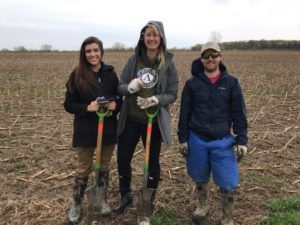 My original role under the OTG Coordinator has changed, being that MUCC was without a coordinator for the program for a couple of months. I was asked to take on a bigger role and help run the OTG program alongside Shaun. Instead of looking at this opportunity as an obstacle to overcome, I looked at it as a challenge and a lesson. With Shaun’s guidance, I am thankful to have had that type of experience under my belt, because it taught me many organizational and leadership skills I know I will carry with me one day if I were to run my own program. Now that Makhayla is on board, Shaun and I have been working with her to help get her settled into her new role. The OTG program did not skip a beat however, all projects have been successful (despite some rescheduling due to the weather). Makhayla has hit the ground running with the OTG program and I am excited to continue alongside her and the program for the remainder of my service.
My original role under the OTG Coordinator has changed, being that MUCC was without a coordinator for the program for a couple of months. I was asked to take on a bigger role and help run the OTG program alongside Shaun. Instead of looking at this opportunity as an obstacle to overcome, I looked at it as a challenge and a lesson. With Shaun’s guidance, I am thankful to have had that type of experience under my belt, because it taught me many organizational and leadership skills I know I will carry with me one day if I were to run my own program. Now that Makhayla is on board, Shaun and I have been working with her to help get her settled into her new role. The OTG program did not skip a beat however, all projects have been successful (despite some rescheduling due to the weather). Makhayla has hit the ground running with the OTG program and I am excited to continue alongside her and the program for the remainder of my service.
Recently, Shaun let me take the reins for an OTG project up in the Gwinn State Forest. I was responsible for organizing and recruiting this event on my own. It so happened to be the very event where OTG reached its 2,500th volunteer as well! We had a great turnout, despite the weather, and celebrated the projects major milestone with smoked pork-butt sandwiches, hotdogs, hamburgers, smiles and laughs. This program has taken off and has made and continues to make such a strong impact on our public lands and wildlife habitat, and that’s due to all that have been contributing to the program since day one.
The post My role as MUCC’s Engagement Specialist appeared first on Michigan United Conservation Clubs.


